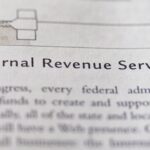Navigating U.S. tax obligations can be complex under the best of circumstances, but when you’re living or traveling outside of California or even outside the United States, it becomes significantly more challenging. Whether you are an expatriate, a digital nomad, a service member stationed abroad, or simply spending extended time in another state or country, it’s essential to understand your responsibilities to the IRS and the State of California.
At The Law Office of Pietro Canestrelli, A.P.C., we assist clients across Temecula, San Diego, Riverside, San Bernardino, and throughout California and the U.S. in addressing the tax challenges that come with remote, multistate, or international living. This article provides a detailed guide to tax compliance for individuals who are out-of-state or international taxpayers.
Understanding U.S. Tax Obligations While Abroad
The United States is one of the few countries that taxes its citizens on worldwide income, regardless of residency. That means even if you live and work entirely overseas, you may still owe federal taxes.
- Worldwide Income Reporting: All U.S. citizens and resident aliens must report income from all sources, both domestic and foreign.
- Foreign Earned Income Exclusion (FEIE): You may be able to exclude up to a certain amount of your foreign-earned income if you meet specific tests.
- Foreign Tax Credit (FTC): You may reduce your U.S. tax liability by claiming credits for foreign income taxes paid.
- Reporting Foreign Assets: U.S. taxpayers must file FBAR and FATCA forms if they meet foreign financial account thresholds.
Learn more about FATCA and FBAR compliance
California Residency and State Tax Issues
California’s Franchise Tax Board (FTB) aggressively enforces tax obligations for anyone it considers a resident. Even temporary moves or time spent out of state can still result in California tax obligations depending on:
- Domicile vs. Residence: Domicile is your permanent home, while residence is where you currently live. California taxes domiciliaries unless they abandon their California ties.
- Safe Harbor for Out-of-State Residents: Certain individuals, like those working on contracts outside the U.S. for at least 546 consecutive days, may qualify for safe harbor from state tax.
- Partial-Year and Nonresident Returns: If you moved during the tax year, you might need to file a part-year resident or nonresident return.
Common Scenarios We Handle
Our firm regularly assists with:
- Expats and U.S. Citizens Living Abroad
- Military Personnel
- Remote Workers and Digital Nomads
- Foreign Investors with U.S. Income
- Taxpayers With Offshore Accounts
Explore remote work tax implications
Required Filings & Deadlines
- Federal Tax Return (Form 1040): Due April 15 (with an automatic two-month extension for those abroad).
- FBAR (FinCEN 114): Due April 15, with an automatic extension to October 15.
- FATCA (Form 8938): Attach to your tax return if foreign asset thresholds are met.
- State Tax Returns: Vary by state, but California nonresident or part-year returns are due April 15.
Risks of Noncompliance
- IRS Penalties & Interest
- FTB Residency Audits
- Civil or Criminal Charges for Willful Nonfiling
- Loss of Passport (in extreme tax debt cases)
Read how we defend clients during IRS audits
How We Help
At The Law Office of Pietro Canestrelli, A.P.C., we offer:
- IRS Representation & Audit Defense
- Back Tax Resolution
- Offer in Compromise (OIC) Assistance
- Filing of Delinquent FBARs & FATCA Forms
- California Residency Appeals
Frequently Asked Questions (FAQs)
- 1. Do I have to file U.S. taxes if I live abroad?
- Yes, U.S. citizens and green card holders must report worldwide income regardless of where they live.
- 2. Can I avoid California taxes if I move out of state?
- Only if you truly abandon California domicile and meet certain criteria. Safe harbor may apply in some situations.
- 3. What if I haven’t filed my FBAR or FATCA forms?
- We can help you file past-due forms and potentially avoid penalties through voluntary disclosure programs.
- 4. What is the penalty for not filing as a California resident?
- The FTB may assess taxes, penalties, and interest, and even pursue aggressive collection actions.
- 5. Can remote work affect my state tax obligations?
- Yes. Where the work is performed, not just where the company is based, can trigger multistate tax issues.
Call for Personalized Help
If you’re traveling, living abroad, or working remotely and unsure about your tax obligations, let us help. At The Law Office of Pietro Canestrelli, A.P.C., we understand the complex intersection of federal and state tax laws for mobile individuals.
Contact us today for a confidential consultation and strategic tax guidance tailored to your situation.




